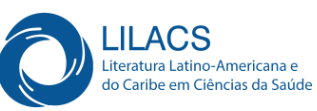Compreensão de leitura de professores: Implicações para práticas docentes
DOI:
https://doi.org/10.5433/2236-6407.2010v1n2p172Palavras-chave:
compreensão de textos, práticas docentes, leituraResumo
Uma questão de interesse aos educadores diz respeito ao processo de compreensão de texto, habilidade fundamental para o progresso nos anos mais avançados de escolarização, e seu efeito nas práticas docentes. Esse é um estudo descritivo que explora essa questão. Utilizou-se um instrumento de compreensão de texto composto de perguntas sobre quatro níveis estruturais do texto e as práticas docentes foram descritas com base numa escala composta de quatro subescalas envolvendo: práticas cognitivas com enfoque lingüístico, aspectos cognitivos, afetivos e motores, formação continuada. Os resultados de 53 docentes mostraram uma leve tendência dos docentes a priorizar práticas cognitivas independente do seu nível de compreensão do texto.Downloads
Não há dados estatísticos.
Referências
Barbirato, F. (2004). Depressão em crianças e jovens. Revista Sinpro, 6, 48-54. Bottino, A. G. (2004). Compreensão da linguagem na educação de jovens e adultos. Dissertação de Mestrado. Rio de Janeiro: Universidade Gama Filho.
Bamberger, R. (2002). Como incentivar o hábito de leitura. São Paulo: Ática. Capovilla, A. & Capovilla, F. (2001). Alfabetização e método fônico. São Paulo: Mnemom.
Delval, J. (2001). Aprender na vida e aprender na escola. Porto Alegre: Artmed.
Ferreiro, E. & Teberosky, A. (1979). Psicogênese da língua escrita. Porto Alegre: Editora Artes Médicas.
Jolibert, J. (Orgs.) (1994). Formando crianças leitoras: vol I. Porto Alegre: Artmed. Kato, M. (1999). O aprendizado da leitura. São Paulo: Martins Fontes.
Kintsch, W. (1988). The role knowledge in discourse comprehension: a construction model. Psychological Review, 95(2), 163-182.
Miguel, E. (2002) Compreensão e redação de textos: dificuldades e ajudas. Porto Alegre: Artmed.
Mota, M. M. P. E. (2007) Algumas considerações sobre o letramento e o desenvolvimento metalingüístico e suas implicações educacionais. Estudos e Pesquisas em Psicologia (UERJ), 7(3), 118-130.
Oliveira, K. L. de, & Santos, A. A. A. (2005). Compreensão em leitura e avaliação da aprendizagem em universitários. Psicologia Reflexão e Crítica, 18(1), 118-124.
Perrenoud, P. (2000). Dez novas competências para ensinar. Porto Alegre : Artmed Editora.
Rangel, M. (2002). Dinâmicas de leitura para sala de aula. Rio de Janeiro: Editora Vozes.
Rossi, J. P. (1990). The function of frame in the comprehension of scientific text. Journal of Education Psychology, 82, 727-732.
Rossi, J. P. & Bert-Erboul, A. (1990). Comprehension de textes et fonctions informatives des phases. Centre d'Etudes de Psychologie Cognitive, document nº 86.
Salles, J. F., & Parente, M. A. P. P. (2004). Compreensão textual em alunos de segunda e terceira séries: uma abordagem cognitiva. Estudos de Psicologia, 9(1), 71-80.
Sandroni, L. & Machado, L. R. (1998) A criança e o livro: Guia prático de estímulo à leitura. São Paulo: Ática.
Villardi, R. (1999). Ensinando a gostar de ler e formando leitores para a vida inteira. Rio de Janeiro: Qualitymark/Dunya.
Zorzi, J. L. (2003). Análise de atitudes e hábitos de leitura em escolares de 1º grau. Temas em Educação II - Livro das Jornadas, 107-122.
Bamberger, R. (2002). Como incentivar o hábito de leitura. São Paulo: Ática. Capovilla, A. & Capovilla, F. (2001). Alfabetização e método fônico. São Paulo: Mnemom.
Delval, J. (2001). Aprender na vida e aprender na escola. Porto Alegre: Artmed.
Ferreiro, E. & Teberosky, A. (1979). Psicogênese da língua escrita. Porto Alegre: Editora Artes Médicas.
Jolibert, J. (Orgs.) (1994). Formando crianças leitoras: vol I. Porto Alegre: Artmed. Kato, M. (1999). O aprendizado da leitura. São Paulo: Martins Fontes.
Kintsch, W. (1988). The role knowledge in discourse comprehension: a construction model. Psychological Review, 95(2), 163-182.
Miguel, E. (2002) Compreensão e redação de textos: dificuldades e ajudas. Porto Alegre: Artmed.
Mota, M. M. P. E. (2007) Algumas considerações sobre o letramento e o desenvolvimento metalingüístico e suas implicações educacionais. Estudos e Pesquisas em Psicologia (UERJ), 7(3), 118-130.
Oliveira, K. L. de, & Santos, A. A. A. (2005). Compreensão em leitura e avaliação da aprendizagem em universitários. Psicologia Reflexão e Crítica, 18(1), 118-124.
Perrenoud, P. (2000). Dez novas competências para ensinar. Porto Alegre : Artmed Editora.
Rangel, M. (2002). Dinâmicas de leitura para sala de aula. Rio de Janeiro: Editora Vozes.
Rossi, J. P. (1990). The function of frame in the comprehension of scientific text. Journal of Education Psychology, 82, 727-732.
Rossi, J. P. & Bert-Erboul, A. (1990). Comprehension de textes et fonctions informatives des phases. Centre d'Etudes de Psychologie Cognitive, document nº 86.
Salles, J. F., & Parente, M. A. P. P. (2004). Compreensão textual em alunos de segunda e terceira séries: uma abordagem cognitiva. Estudos de Psicologia, 9(1), 71-80.
Sandroni, L. & Machado, L. R. (1998) A criança e o livro: Guia prático de estímulo à leitura. São Paulo: Ática.
Villardi, R. (1999). Ensinando a gostar de ler e formando leitores para a vida inteira. Rio de Janeiro: Qualitymark/Dunya.
Zorzi, J. L. (2003). Análise de atitudes e hábitos de leitura em escolares de 1º grau. Temas em Educação II - Livro das Jornadas, 107-122.
Downloads
Publicado
2010-10-15
Como Citar
Soares, A. B., Teixeira, T. C. C. C., & Mota, M. M. P. E. da. (2010). Compreensão de leitura de professores: Implicações para práticas docentes. Estudos Interdisciplinares Em Psicologia, 1(2), 172–183. https://doi.org/10.5433/2236-6407.2010v1n2p172
Edição
Seção
Artigos Originais
Licença
Copyright (c) 2010 Estudos Interdisciplinares em Psicologia

Este trabalho está licenciado sob uma licença Creative Commons Attribution 4.0 International License.
Estudos interdisciplinares em Psicologia adota a licença CC-BY, esta licença permite que os reutilizadores distribuam, remixem, adaptem e criem a partir do material em qualquer meio ou formato, desde que a atribuição seja dada ao criador. A licença permite o uso comercial.
Este obra está licenciado com uma Licença Attribution 4.0 International (CC BY 4.0)




















